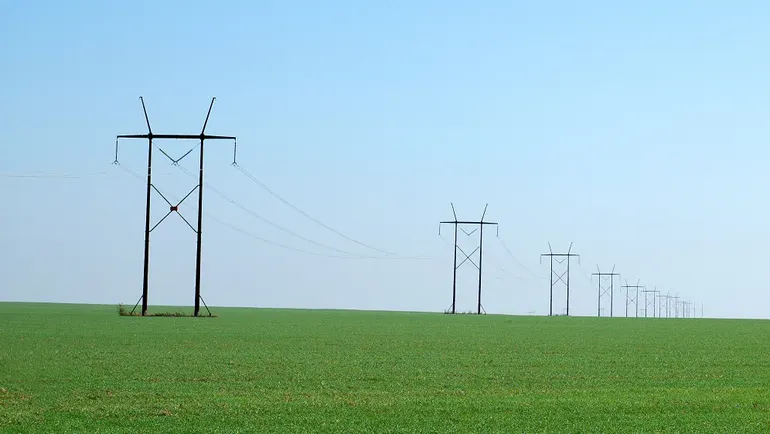Pre-qualified vs. Pre-approved: What’s the Difference?
Find out the difference between a prequalification vs a preapproval letter for a mortgage before you begin the home buying process. The post Pre-qualified vs. Pre-approved: What’s the Difference? appeared first on Redfin | Real Estate Tips for Home Buying, Selling & More.


If you’re considering buying a home, you’ve likely heard that you need to be pre-qualified or pre-approved in order to get a mortgage. While these terms are often used interchangeably, there are distinct differences between the two that every homebuyer should understand.
In this Redfin article, we’ll outline the differences between pre-qualification vs. pre-approval and which option is right for you. Whether you’re touring homes in Norfolk, VA, or looking at houses in Dallas, TX, here’s what you need to know about being pre-approved vs. pre-qualified.
Key takeaways
- A pre-qualification is an estimate of how much you might be able to borrow, based on basic financial info you provide.
- A pre-approval is a conditional offer from a lender stating how much they’re likely to lend you, pending final underwriting.
- Pre-approvals hold more weight during the home buying process than pre-qualification.
What’s the difference between pre-qualification vs pre-approval?
The pre-qualification process is an informal evaluation of your finances performed by a lender. It helps you understand where your finances stand and if you need to make improvements. A pre-approval letter is a more serious statement from a lender that shows how much you’re qualified to borrow, loans you may be approved for, and interest rates.

What is mortgage pre-qualification?
A pre-qualification is an informal look at your finances, with information you provide to a lender. It will give you an estimate of how much you can borrow for a mortgage and help you understand your financial situation.
What is mortgage pre-approval?
A mortgage pre-approval is an official statement from a lender showing how much you’re qualified to borrow. It also determines the type of loans you may be approved for and what your interest rate may be. Redfin real estate expert Joe Rath states that a mortgage pre-approval, “Certifies what you’re able to afford.” It shows you’re a serious buyer and that your offer should be strongly considered.
During the mortgage pre-approval process, a lender asks you to provide documentation such as W-2s, bank statements, tax returns, and proof of assets, among other things. The lender will run your credit report, which will result in a “hard inquiry,” meaning it can cause your credit score to decrease by a few points.
Pre-qualification Pre-approval Purpose To get a general idea of your borrowing power To show sellers you’re a serious and qualified buyer Valid for Not typically time-limited Usually valid for 60–90 days Used for Early planning, browsing homes Making an offer, speeding up the loan process Required before offer No Often yes, especially in competitive markets Documents needed Self-reported info about:
Credit check Soft inquiry Hard inquiry Timeline Minutes About 1 to 3 business days
Do you need a pre-qualification or pre-approval?
It depends on how serious you are about buying a home. If you’re casually looking at houses but not necessarily planning to make an offer, a pre-qualification works great. If you’re ready to buy a home soon, especially if you’re in a competitive market, you should get pre-approved for a mortgage before you start your home search.
FAQs about pre-approval and pre-qualification
How long does a mortgage pre-approval last?
Mortgage pre-approvals are typically good for 90 days. The pre-approval letter will show an expiration date, after which it’s no longer valid. Pre-approval letters “expire” because a borrower’s employment, assets, and debts can change. Lenders need up-to-date information before agreeing to another pre-approval.
Do I need to be pre-qualified before getting pre-approved?
No, you don’t have to be pre-qualified to get pre-approved. If you know you’re financially ready to buy and want to start the homebuying process, you can skip pre-qualification and apply for pre-approval.
When is the best time to get pre-approved?
Ideally, you’d have your mortgage pre-approval letter before you start looking at homes. Having mortgage pre-approval shows a seller you’re a serious buyer and may make your offer stand out.
Do you need a pre-approval to make an offer?
No, you don’t need a pre-approval to make an offer. However, having a pre-approval letter included in your offer, the seller can see you’re a serious buyer who has a better chance of getting their financing approved.
Can your mortgage application still be denied with a pre-approval?
Even though you were pre-approved, the lender could still deny you a mortgage. Denial doesn’t happen often, but it can happen if you took out other lines of credit, left your job, or the home appraises lower than the loan amount.
The post Pre-qualified vs. Pre-approved: What’s the Difference? appeared first on Redfin | Real Estate Tips for Home Buying, Selling & More.
























































































































































